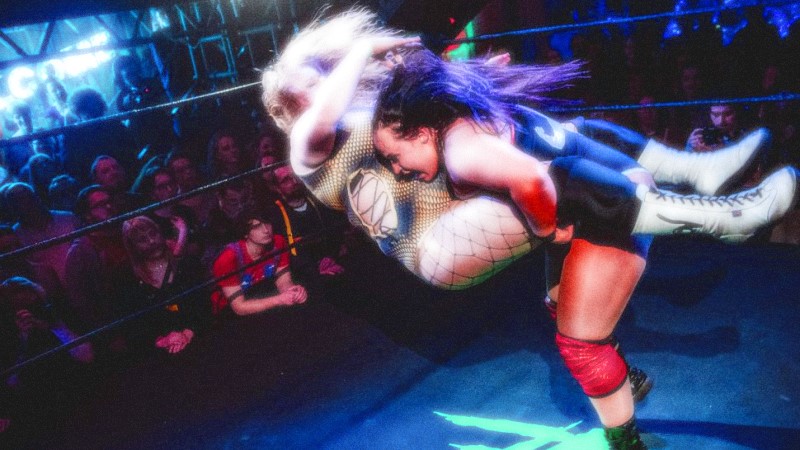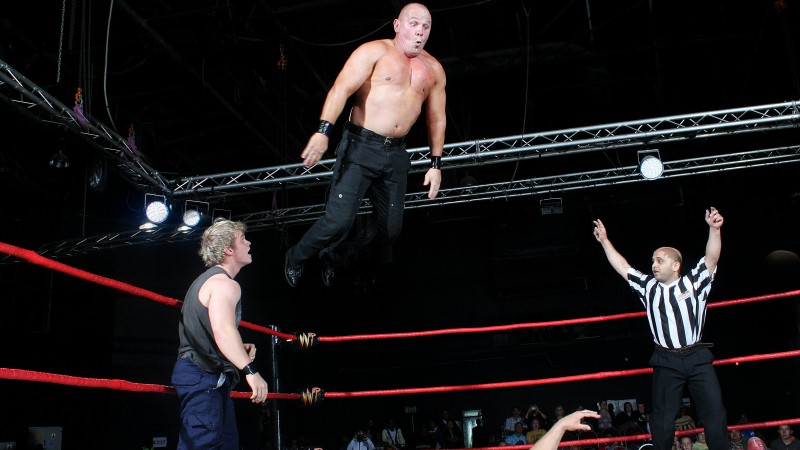
Wrestle Queendom: Rise of Women in Wrestling – The roots of women’s professional wrestling stretch back to the 20th century, when their role was often marginalised. In the early days, female wrestlers were a rarity, with limited opportunities and representation.
By the 1970s, the scenario began changing gradually as female wrestlers carved a niche for themselves, pushing past the boundaries of gender norms. However, it was in the late 20th and early 21st centuries that significant strides were made, with women’s wrestling being recognized for its athleticism and entertainment value rather than just an auxiliary to men’s events.
Rise of Wrestle Queendom
Wrestle Queendom, initiated by Pro-Wrestling: EVE debuted in 2018 at London’s York Hall and quickly became more than a wrestling event—it celebrated female empowerment and talent. The atmosphere of excitement and empowerment was palpable, with the event highlighting not just wrestling skills but also the breaking of long-held stereotypes.
Charlie Morgan’s death-defying leap from a balcony and the acclaimed match between Kay Lee Ray and Meiko Satomura symbolised the event’s pioneering spirit. These instances were more than just matches; they symbolised the resilience, skill, and breaking of new ground in women’s wrestling. The event’s success was underscored by a sold-out venue, a remarkable achievement for an all-women’s event at York Hall steeped in combat sports history.
The inaugural Wrestle Queendom set the tone for subsequent events, each continuing to push the boundaries and expectations of women’s wrestling. Incorporating international wrestling stars and legends added a global dimension to the event, showcasing the breadth and depth of talent in women’s wrestling.
Each sequel to the original event brought fresh narratives and talent, maintaining the revolutionary spirit that defined the first Wrestle Queendom. These events were not just about showcasing wrestling prowess; they were a statement of intent from Pro-Wrestling: EVE.
Key Personalities
The rise of Wrestle Queendom can be attributed to many talented and fearless female wrestlers. Figures like Charlie Morgan, who captivated audiences with her daredevilry and skill, and others such as Kay Lee Ray, Meiko Satomura, and Aja Kong brought international acclaim and diversity to the show.
Their groundbreaking performances have shattered existing barriers in women’s wrestling and elevated the sport’s popularity to unprecedented levels, captivating betting fans. These athletes’ displays of prowess in the ring have turned women’s wrestling into a popular choice among betting enthusiasts.
It has even broken barriers in the betting industry with odds for the women’s royal rumble now available on popular operators. For those looking to place bets, can be found from Gambling.com ranks the best betting sites for UK punters, offering insights into where to engage with this increasingly popular aspect of the sport.
Cultural Impact
Wrestle Queendom transcended the confines of a wrestling event, influencing the broader cultural and social landscape. By promoting inclusivity and equality, the event resonated with audiences beyond the wrestling community, fostering a sense of solidarity and progressive change.
Challenges and Controversies
Despite its significant progress, the journey of women’s wrestling continues to confront considerable obstacles. One of the most persistent issues is the enduring presence of gender-based stereotypes.
Female wrestlers often battle preconceived notions about their capabilities and roles in the sport. This struggle extends beyond the ring as they contend with unequal pay. Despite drawing substantial crowds and delivering performances equal to their male counterparts, the wage gap remains a glaring issue, reflecting broader societal inequities.
Additionally, the opportunities available to women in wrestling are frequently limited. While there are notable exceptions, the breadth of opportunities in terms of event billing, sponsorship, and media coverage often falls short compared to what is available to male wrestlers. Such disparities highlight the need for ongoing advocacy and structural reform within the industry to ensure fairness and equality.
Future Prospects
The trajectory of women’s wrestling is set to ascend, fueled by initiatives like Wrestle Queendom. The event and others like it play a crucial role in diversifying the landscape of sports representation. They provide a platform for showcasing various talents, contributing to a more inclusive and representative wrestling world.
The industry is poised to welcome an influx of diverse talent, which, coupled with increasing societal acceptance, will likely propel women’s wrestling into a more prominent position in mainstream sports.
Expectations are high for further innovations in wrestling styles, storytelling, and character portrayal. These developments will enhance the appeal and quality of women’s wrestling and contribute significantly to its growth and recognition. The future, thus, holds the promise of an era where women wrestlers are celebrated for their athleticism and artistry on an equal footing with men, driving the sport to new heights of popularity and respect.
Summary
Wrestle Queendom epitomises the transformative journey of women in professional wrestling. It’s a testament to their resilience, talent, and the power of inclusive storytelling. This event, and others like it, provides a platform for female athletes to showcase their prowess and challenges and reshape societal perceptions about women in sports. The rise of women in wrestling, symbolised by “Wrestle Queendom,” is not just a triumph in the arena but a victory for gender equality and empowerment.
Wrestle Queendom: Rise of Women in Wrestling


